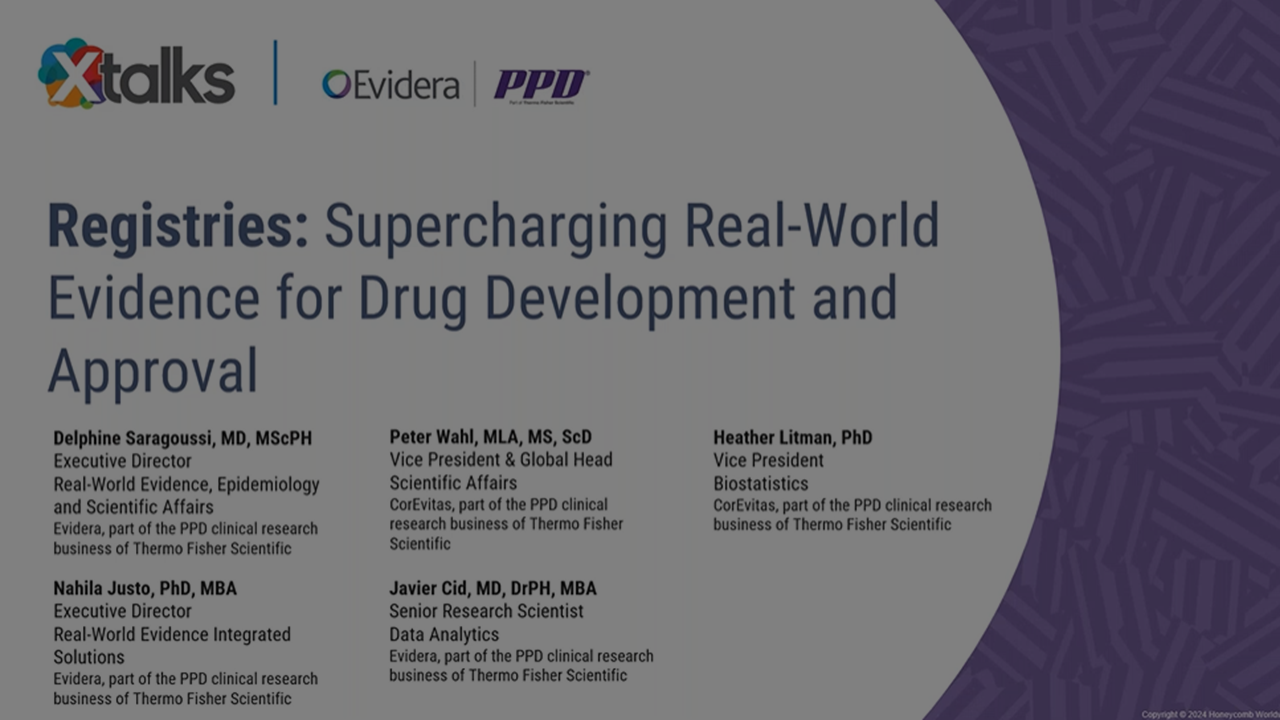The use of real-world evidence (RWE) in drug development has been fueled by an increased acceptance of RWE by stakeholders such as regulatory agencies, health technology assessment bodies, and payers, as well as a plethora of real-world data (RWD) sources.
Protocol-based disease registries are purpose-built for research, making them one of the most clinically rich sources of RWD. Registries allow the collection of fit-for-purpose data and are an acknowledged source for observational RWE generation, especially in rare diseases where a small number of patients are distributed across broad geographies.
Registries are most often used to fulfill post-approval safety commitments, to monitor or compare treatment patterns and effectiveness outcomes in the real world and to describe the natural history of diseases.
This webinar provides insights into how RWE and RWD from registries enhance clinical development, approval and post-marketing analyses, particularly for rare diseases.
Watch the webinar and learn:
The types of RWD that can be collected in registries
How RWD can be used to conduct nested, customized registry-based studies
How to ensure data are collected consistently across patients, practice settings, geography and time
How to determine if and what kind of registry you require
What regulators say about using RWD from registries to inform their decision making
Whether registry data can be used and linked to other data sources
How to get from data to actionable insights


